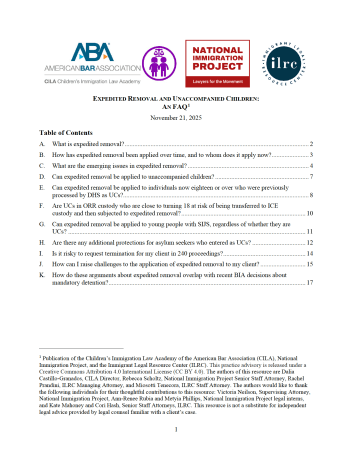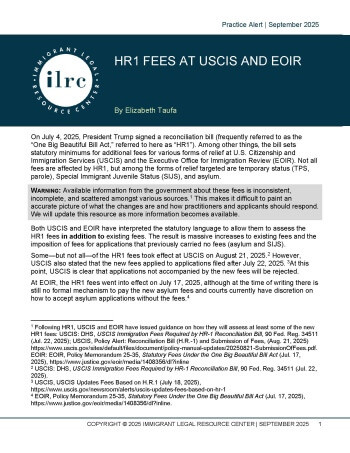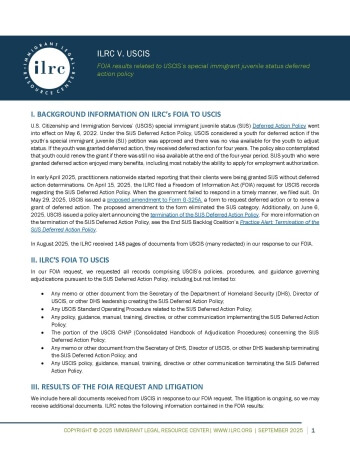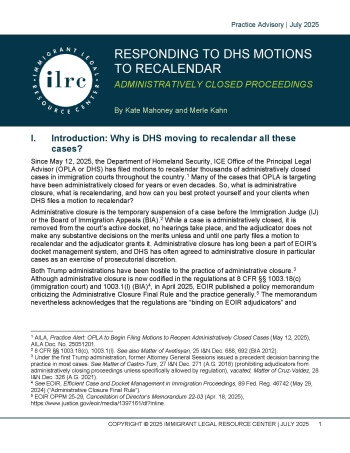Term Page
Immigrant Youth 
This resource – created with our partners at the Children’s Immigration Law Academy and National Immigration Project – answers common questions about expedited removal and its application to children and offers arguments against its application to young people who were processed as UCs and young people with approved special immigrant juvenile status (SIJS), should the government attempt to apply it to those groups.

This practice advisory provides information about recently implemented fee increases at USCIS and EOIR. These fee increases are a result of the “One Big Beautiful Bill Act” also known as HR1. This advisory explores what we know and what we still don’t know about the fees, how to pay them, and potential future changes.

On April 15, 2025, the ILRC filed a Freedom of Information Act (FOIA) request for USCIS records regarding the SIJS Deferred Action Policy. When the government failed to respond in a timely manner, we filed suit. This resource includes all documents we have received from USCIS as a result of the FOIA request, as well as a short summary of the request and results.
On July 24, 2025, the ILRC submitted a comment strongly opposing the government’s proposed changes to Form G-325A and related policies that end protections for three vulnerable groups: young people with Special Immigrant Juvenile Status (SIJS), stateless individuals, and immigrant workers in the Deferred Action for Labor Enforcement (DALE) program.
The ILRC strongly opposes new U.S. Citizenship and Immigration Services (USCIS) policy changes that end deferred action for youth approved for Special Immigrant Juvenile Status (SIJS).
On July 16, 2025, ILRC submitted a comment opposing a new U.S. Citizenship and Immigration Services (USCIS) policy that allows the agency to use “derogatory information” against immigration applicants without always disclosing it.
On July 7, 2025, the ILRC submitted a comment opposing a new federal rule that changes how the Office of Refugee Resettlement (ORR) handles unaccompanied children.
In this Resource Toolkit, we will address recent changes affecting students and school campuses and what students, parents and caregivers, and school administrators can do to prepare for immigration enforcement action at schools while highlighting the constitutional protections that remain a pillar of our democracy.
Community members across the country are reporting visits from immigration and other federal officers seeking to meet with certain children who entered the United States unaccompanied. These children are often referred to as “unaccompanied children” (UCs) because at the time they were arrested by immigration (such as crossing the border), they were not with a parent or legal guardian. Although these visits are sometimes described as “wellness checks,” they are part of a broader, coordinated effort to locate and deport some vulnerable young people and their sponsors. It is crucial for families and immigrant communities to stay informed, exercise their rights, and seek legal support when needed.

In recent months, the Department of Homeland Security has begun filing thousands of motions to recalendar administratively closed proceedings. This trend is raising questions about how attorneys and accredited representatives can respond to these motions and protect their clients’ interests, particularly in cases that have been administratively closed for many years. This advisory explores those questions and offers strategy considerations when determining how to proceed in each case.